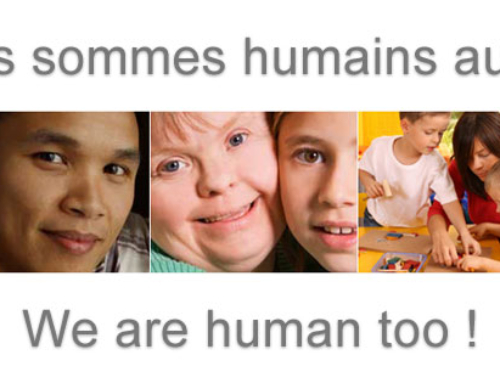Eight-year-old Jessica has a delightful personality. She is sensitive, yet easy going and a wonderful big sister to five-year-old Ashley and 18-month old Aaron. One morning, she awakes to find her grandparents in the kitchen. They embrace her and Ashley tightly and explain that Mom and Dad took Aaron to the hospital overnight as he was sick with a high fever and needs to stay there for a few days. While their grandmother is suggesting that everything will be okay, her facial expression conveys something different.
In the days that follow, Jessica’s parents run in and out of the house, with little time to exchange more than “hello”. Their eyes are teary and their quick assurances do little to placate Jessica, who falls asleep nightly clutching Aaron’s blanket.
Jessica is not alone in her feelings of isolation and concern. Being too young to properly articulate her emotions, Ashley conveys her insecurity by acting out frequently and clinging to their mother, who attempts to comfort her daughter while battling her own fears and conflicting emotions. While family friends offer to take care of Ashley for the day, Ashley is afraid to leave her mother’s side.
After what feels like an eternity, Jessica’s parents finally return home with her brother. But while they are physically present, her once talkative and nurturing mother sits in her room, alternating between reading, talking on phone, and crying, while her father is just very quiet. One evening Jessica overhears her parents talking and tries to make sense of some of their conversation, which includes words like “disability”, “chronic illness” and “genetic testing”. Although their dialogue is quite sophisticated, Jessica ascertains that her brother’s condition is serious, based on her parents’ anxious tones and facial expressions. Many days pass before they sit down and try to explain Aaron’s condition to Jessica and her sister.
Despite her overwhelming anxiety and desire for parental guidance, Jessica continuously represses her own pain in an attempt to fill her distinct role as the “big sister”. She constantly reminds herself to behave and set an example for her younger sister, in order to spare her parents additional stress. She worries about Aaron, her parents, her sister, her grandparents and herself. At school, she becomes secretive around her friends because she is not sure whether she has permission to talk about her brother’s condition, and how it will be perceived by her peers.
Years will go by and Jessica’s conflicting emotions will change and abate. There will be absences when her parents will travel to consult with medical specialists in other cities. Therapists will enter and exit their lives, leaving Jessica’s parents with home-based programs and exercises to fill their days. Jessica will continue to be there for Aaron while becoming even more sensitive, caring and accepting of others. She will confront the cruelty of people who reject her brother – a reality which will be a constant source of tremendous pain for her and her family.
Jessica’s story reflects some of the common emotions experienced by siblings of exceptional children. While some siblings may resent and express jealousy over the extra attention paid to their exceptional brothers and sisters, others may express anger or guilt around their diagnosis. Additionally, some may worry that they may “catch” the disability or that they are carrying the same genes as their affected sibling.
Certain children may also feel embarrassed by their siblings’ inappropriate behaviors and annoyed or agitated by them. Feeling anxious, isolated and confused are quite common reactions to the uncertainty that surrounds the diagnosis of a sibling with special needs. Finally, many children communicate their conflicting emotions by acting out, conveying a perfect image or covering up success. As with Jessica’s parents, many mothers and fathers may initially become so overwhelmed by their own emotions and responsibilities around their exceptional child that they may inadvertently neglect the siblings’ needs.
On the flip side, siblings can be wonderful role models, playmates and teachers to the exceptional family member. Siblings often have unique bonds with their exceptional brother or sister and strive to protect them from life’s harsh experiences. Moreover, siblings of exceptional children often grow up to become caring, sensitive and giving adults who embrace diversity and are more accepting of others with differences. Many pursue careers in the “helping” professions and contribute to society in special ways, for example, researching disabilities or fundraising and advocating for exceptional people, with a true passion that few others possess.
The following suggestions may help to ensure that your child’s experience in relation to his or her exceptional sibling will be largely positive:
- Find a balance between enlisting the help and support of siblings, while allowing them to have childhood fun and be themselves.
- Establish regular family meetings or brainstorming sessions where all members of the family have a chance to vent and share their feelings. Have each member of the family say nice things about the others, so that they will be able to appreciate the positives. Incorporate role-playing to help siblings understand the varying perspectives of other individuals.
- Listen to their emotions and do not criticize them. All feelings, including ones of embarrassment, resentment, and jealousy, should be validated. Offer the siblings help in trying to work through them. Each family member’s perception is their own truth.
- When natural sibling rivalry escalates, act as a coach, not a referee. Encourage successes and foster team-playing between siblings. Don’t take sides.
- Recognize that all siblings naturally compete with each other and have conflicts even when there are no exceptional children in the family. Understanding this may help put things into perspective for parents who may otherwise mistakenly interpret their children’s “normal” conflicts as a sign that they are acting out around the exceptional family member.
- Parents often use behavioral management techniques such as charts and prizes for their exceptional child. Remember to do this for the child’s siblings as well, so that familial behaviors, expectations and consequences are clearly defined for all children. While target behaviors may be different for the siblings, the tools should be the same (i.e. chart or contract) so that all of the children feel on a par.
- Don’t let siblings fall into roles like the “good one” or the “patient one”; this only exerts additional pressure on the children to be perfect.
- Define the concept of “fairness” to the siblings by explaining that each child in the family gets what he or she requires, which means that sometimes the exceptional child may require more attention in a given situation. (This may be a very hard concept, especially for younger children to understand). The important thing to stress is that your love is equal for all of them.
- Find a family support group. Most people find comfort in talking to others who are in the same situation. Only other siblings of exceptional children can understand what they are going through. The “being in the same boat experience” can be very helpful. There is also a tremendous amount of literature geared to children of all ages that covers the subject of being the sibling of an exceptional child.
- Teaching the sibling relaxation techniques may help them to manage their anxiety, anger or frustrations.
- Alone time with one or both parents is very important as it conveys to the child that he or she is special and valued as much as the exceptional family member. Allowing siblings to spend time at relatives or friends’ houses as respite-time can be very therapeutic as well.
- As stated in last issue’s Ask The Expert column, there also needs to be a balance between keeping siblings “in the dark” while trying to protect them and sharing too much information or sharing information that is too difficult for their cognitive level. Explain to siblings about the disabilities of their brother or sister. (While some parents may fear that the siblings may use the information against the exceptional child, most inherently know that it is inappropriate to use as ammunition for teasing.) However, do not give too much information, nor give information that is too complex. Answer the child’s questions without going into too many details. If they have had enough information, they will accept that and be on their way. If they feel they need more information, they will come back with more questions. Sometimes those deeper questions won’t come for another six months, a year or even a few years. Make sure that your children know that you are always there to answer their questions as best you can or to take them to a professional who can answer the questions.
- Finally and perhaps most importantly, remember that we all have “special needs.” Each child needs love, respect, and attention. Each needs to be allowed to be him or herself and to be respected and supported for his or her distinct personality traits, strengths and weaknesses.




